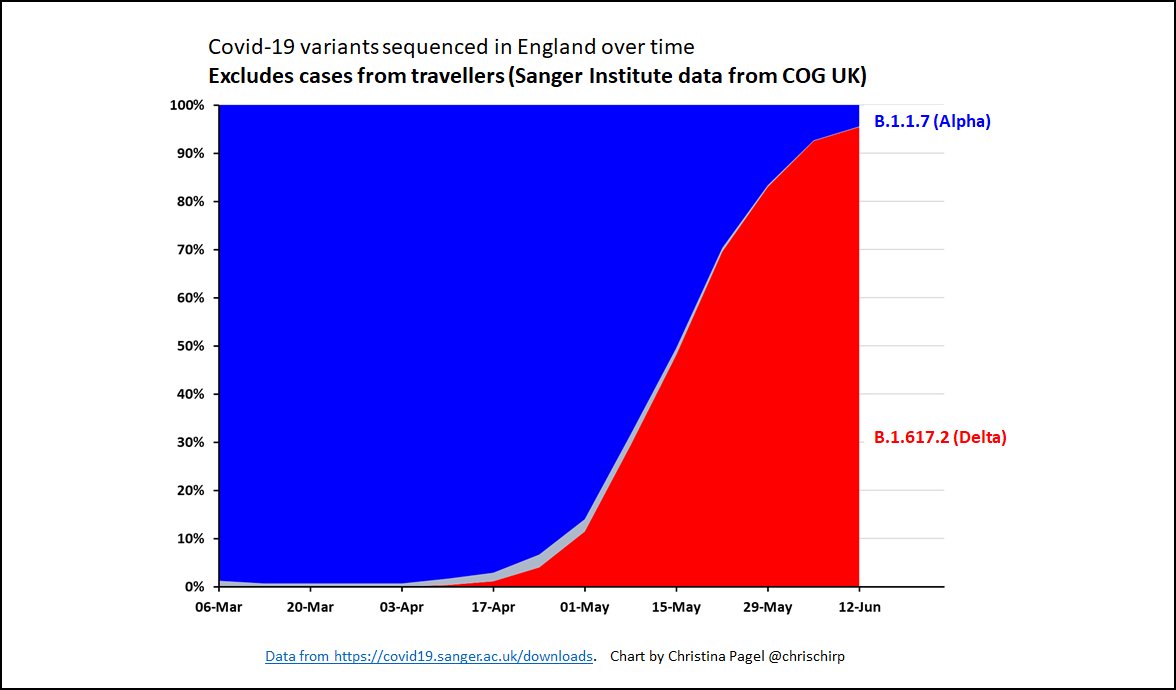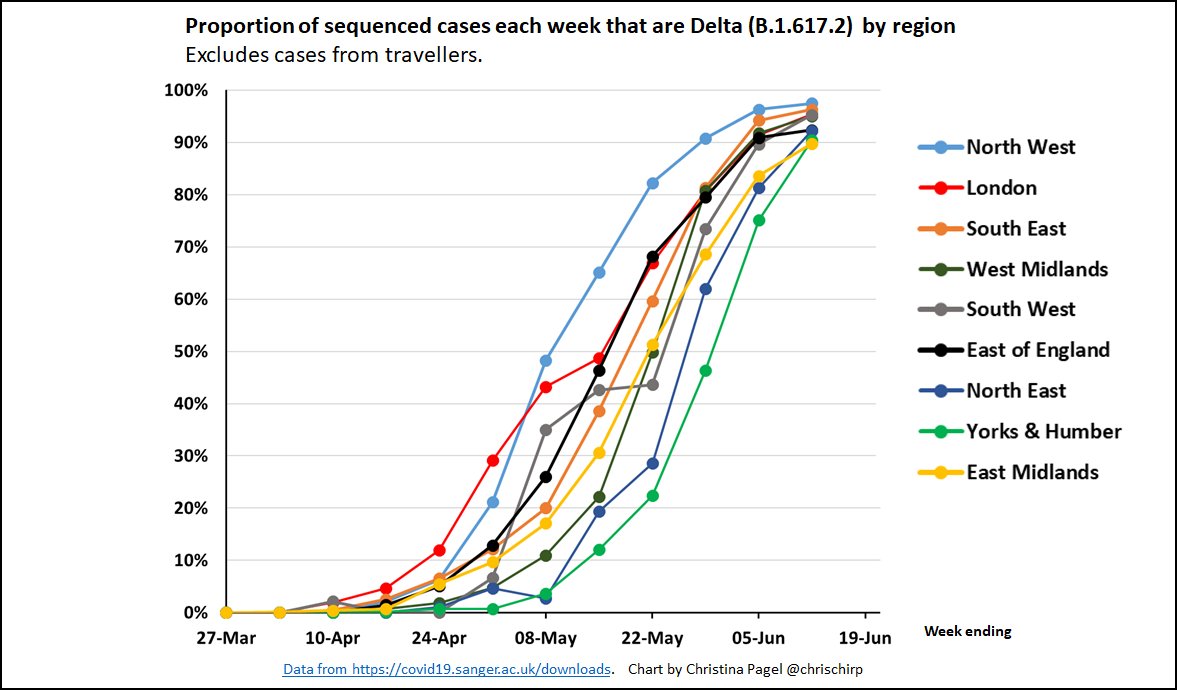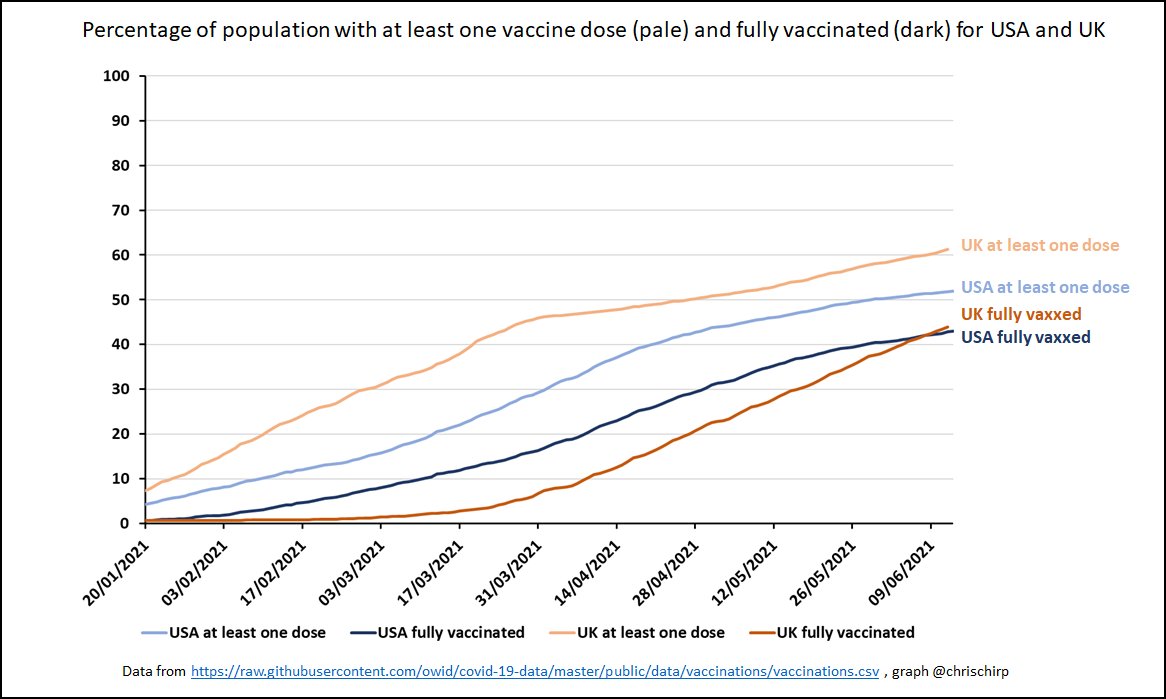
THREAD on vaccination, population immunity & children.
TLDR: Current gov policy seems to be getting to population immunity by vaxxing adults and infecting kids.
Are we really saying better to infect millions of kids than to a) prevent them getting it and b) vax them? 1/8
TLDR: Current gov policy seems to be getting to population immunity by vaxxing adults and infecting kids.
Are we really saying better to infect millions of kids than to a) prevent them getting it and b) vax them? 1/8
Ultimately we want to control covid by high percentage of population being immune.
With Delta we probably need 85%+ of population immune (assuming R0~7). Children are 21% of English population.
You *cannot* get to 85% without high proportion of children being immune. 2/8
With Delta we probably need 85%+ of population immune (assuming R0~7). Children are 21% of English population.
You *cannot* get to 85% without high proportion of children being immune. 2/8
The top bar shows breakdown of English popn by age - adults are 79% of population. Even if vax were perfect & all adults were vaxxed, you'd still need many children to be immune too.
Bottom bar shows 1 way of getting to 85% popn immunity with optimistic adult vax coverage. 3/8
Bottom bar shows 1 way of getting to 85% popn immunity with optimistic adult vax coverage. 3/8

Currently, 15-20% of young adults have immunity to covid from previous infection (assets.publishing.service.gov.uk/government/upl…)
Assume similar for under 18s. The choice is then: how do you get from 20% to 90% of teenagers and over 50% of under 12s being immune?
Infection with covid or vax? 4/8
Assume similar for under 18s. The choice is then: how do you get from 20% to 90% of teenagers and over 50% of under 12s being immune?
Infection with covid or vax? 4/8
We vaccinate school age children against flu every year and Covid is more fatal than flu even for young children.
Meanwhile, 10-15% of 2-16 year olds report symptoms for more than 5 weeks (ONS infection survey). 5/8

https://twitter.com/zorinaq/status/1406714693507375106?s=20
Meanwhile, 10-15% of 2-16 year olds report symptoms for more than 5 weeks (ONS infection survey). 5/8


The world has been vaccinating tens of millions of young adults with Pfizer. Thousands of teenagers.
Efficacy against covid is very high and side effects are very rare.
cdc.gov/coronavirus/20… 6/8
Efficacy against covid is very high and side effects are very rare.
cdc.gov/coronavirus/20… 6/8
In example above, going from 20% to 90% immunity in teens & 20% to 60% in under 12s *without* vaccination means another *6 million* under 18s infected with covid.
Each one also potentially infecting someone else.
Each one providing a chance for covid to mutate further. 7/8
Each one also potentially infecting someone else.
Each one providing a chance for covid to mutate further. 7/8
I just cannot understand how it's ok to get to immunity in under 18s by infecting millions of children whereas over 18s get to do it by a safe and effective vaccine. 8/8
PS it could be that population immunity is not practically achievable with current vaccines and current transmissible variants. But even then - the more people immune the easier it is to "live with covid", so the arguments above hold.
• • •
Missing some Tweet in this thread? You can try to
force a refresh
















